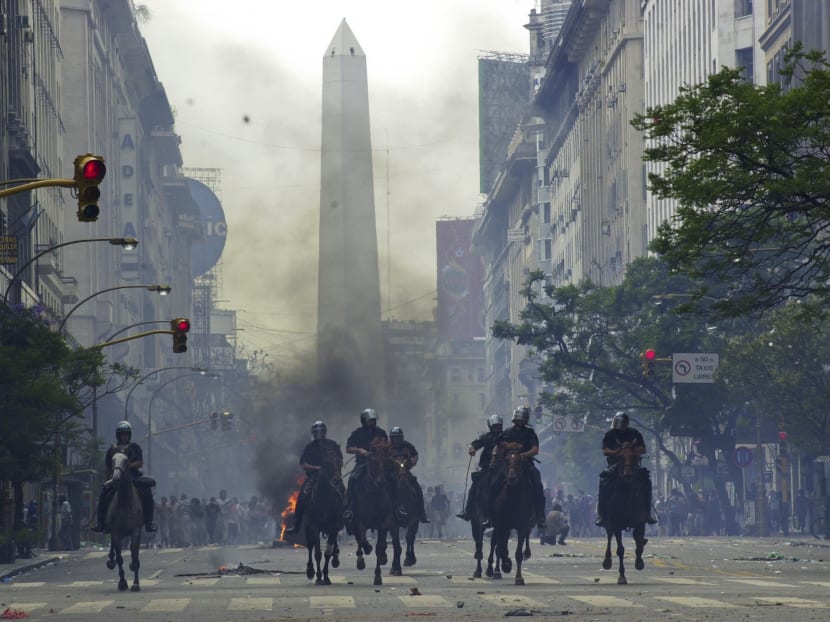Argentina recalls its financial crisis, advises Greece
BUENOS AIRES (Argentina) —As Argentines closely watch the financial turmoil in Greece recalling their own worst crisis 14 years ago, the architect of the South American country's recovery has a message for the European nation: Renegotiate your debt.

In this Dec 20, 2001 file photo, mounted police charge anti-government demonstrators in Buenos Aires, Argentina, after the South American nation had just defaulted on more than US$100 billion in foreign debt, banks were shuttered, the economy was in ruins and streets were filled with pot-banging protesters whose chants of "throw them all out" sent five presidents packing. Photo: AP
BUENOS AIRES (Argentina) —As Argentines closely watch the financial turmoil in Greece recalling their own worst crisis 14 years ago, the architect of the South American country's recovery has a message for the European nation: Renegotiate your debt.
Greece is in a financial limbo now that its bailout programme has expired, cutting it off from vital financing and pushing it one step closer to leaving the euro. The country has put limits on cash withdrawals in order to keep banks from collapsing.
Its situation was further worsened Tuesday (June 30) when it failed to repay a US$1.8 billion (S$2.4 billion) debt to the International Monetary Fund, the first developed country to do so.
Former Argentine Economy Minister Roberto Lavagna is credited with playing a key role in his country's recovery after its US$100 billion debt default in 2001. He said Tuesday that a “strong restructuring” of its debt is the way to help Greece come out of its crisis and avoid conflict within the European Union.
“It's not the definitive condition ... but it is necessary” to avoid a political conflict, Mr Lavagna told The Associated Press. “Democracy is worth more than markets.”
Mr Lavagna who was economy minister in 2002-05, led Argentina's recovery from the 2002 recession, considered by many the worst in the country's history, and spearheaded its 2005 debt restructuring.
Argentina's financial collapse was so bad that one of every five Argentines was out of work. The peso, which had been tied to the dollar, lost nearly 70 per cent of its value, and banks froze deposits and barricaded behind sheet metal as thousands of protesters unsuccessfully tried to withdraw their savings.
Mr Lavagna said the demonstrations in Greece “are way more peaceful” than in Argentina, where at least 27 people died in protests and looting in December 2001 as the economy unravelled. He said that at the time, Argentina also lacked international support and didn't have the obligations of an economic union like the European Union. AP






